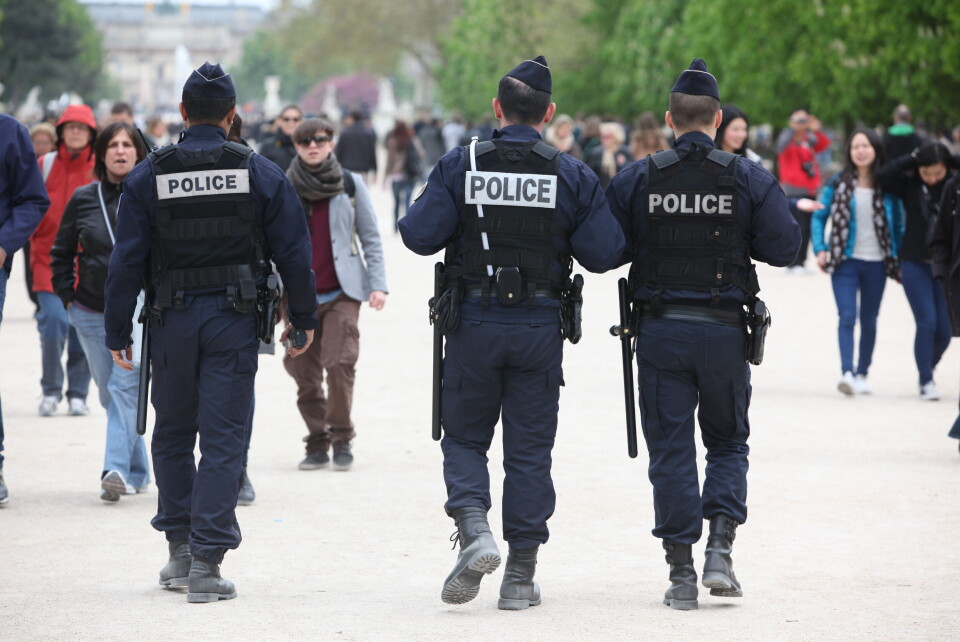-
How many Americans live in Paris - and where else are they choosing in France?
Over a quarter of all US nationals in France live in the capital city
-
Price rises for Netflix in France
The Standard (with ads) and Premium packages are increasing by €24 a year
-
Leclerc supermarkets to sell car fuel at cost price for Easter
The initiative will apply to diesel, petrol, and LPG
Change Olympic opening plans, warns Paris football final investigator
The head of the investigation into the Stade de France chaos states police do not have the crowd control skills to keep people safe at a River Seine opening

Twelve million visitors are expected for the Paris 2024 Olympics with an opening ceremony along the Seine and events in three dozen sites – so the Champions League final fiasco has made security a big concern.
Terror threats are one thing but heavy-handed policing at the Liverpool-Real Madrid game – where fans were hit with batons and sprayed with tear-gas – caused alarm at officers’ crowd control abilities.
After the game, police were missing as fans were attacked by gangs outside the ground.
Olympics organiser says lessons learnt
Although Paris 2024 will have up to 35,000 private security agents to ensure the safety of 10,000 athletes, spectators, event sites and fan zones, public security will be the job of 30,000 police and gendarmes, 10,000 soldiers, and city police.
Tony Estanguet, president of the Paris 2024 organising committee, said in a statement “lessons had to be learned” from the football fiasco but everyone would be “ready” in two years.
Read more: New Olympic Intelligence Centre will coordinate security at Paris 2024
“When there is an event like this, inevitably it is a challenge and we have to learn the lessons – but security has been at the heart of our priorities for years.”
He said France did have the expertise for a safe Olympics, but not all security experts are convinced.
Seine opening is ‘criminal folly’
Criminologist Alain Bauer, who was tasked by the Ligue de Football Professionnel (LFP) to find out what failed at the final, said the Olympic opening ceremony might be the police’s biggest security challenge.
He told France TV before his appointment by the LFP that the opening ceremony was a “criminal folly”.
The organisers plan 200 boats carrying national teams and performers for 6km along the Seine, watched by 600,000 on the shores, but Prof Bauer said the plan was opposed by the Paris prefecture of police.
Difficult to defend opening plans
He said it was a security nightmare and, in an online interview with The Connexion, Prof Bauer said that “beyond the challenges of kamikaze drones, the increased risks of opening on the Seine are underestimated and you would be hard put to find one public or private expert to defend the choice.
“The whole plan must be revisited and validated by independent and irrefutable experts and the final say should be given back to the Paris prefecture of police.”
Police not prepared for football crowds
In a report on the Champions League final to new Prime Minister Élisabeth Borne, the government’s lead representative for Paris 2024 Michel Cadot said that despite careful preparation there were several failures by public and football authorities – notably in failing to properly check tickets – but also by the prefecture.
He said the police did not direct supporters to the proper access points and were not well prepared for dealing with a large crowd.
Interior Minister Gérald Darmanin has already apologised for police over-use of tear-gas but Mr Cadot said this happened as no proper crowd control measures were in place.
Read more: Champions League final chaos: French minister defends police response
He said lessons had to be learned for Paris 2024.
Political class stigmatised fans
Université Paris-Saclay sports policy specialist Clément Lopez said the media impact of the fiasco “should push the organisations involved to learn lessons in terms of stadium risk management, especially for the 2023 Rugby World Cup [which France is to host] and Paris 2024.
“That said, France has been confronted with these issues for more than 10 years and has hosted many events, especially the Euro 2016 football in a post-terror attack context.”
He said comments after the football final also showed a discrepancy between politicians’ judgments and fan testimonies “with at the heart a possible stigmatisation of football fans, by the French political class”.
Mr Cadot’s report highlighted this as it was clear politicians and police had based decisions – such as police wearing riot gear – on an intelligence report citing the Hillsborough disaster, although fans were cleared of that in an inquest that blamed police.
Students will fill security jobs
Stéphane Boudon, of main security union SNEPS-CFTC, said there were not enough stadiers security staff to cope with Olympic crowds.
Low pay meant many experienced staff gave up during Covid but Jean-Philippe d’Hallivillée of OPSE, which groups private agencies, said changes had been made to cope.
Professional security staff do a five-week training scheme to gain five-year work permits but a ‘light’ version for one-off Olympics staff saw this cut from 175 hours to 105.
Mr d’Hallivillée said “with three million students in France, we hope to recruit enough”, but he admitted one challenge was to hire more women guards to check female spectators.
He is involved in security coordination talks with Paris 2024 officials and said next year’s Rugby World Cup is seen as a dry run.
Related articles
Paris 2024 Olympic Games: How to get tickets and what they will cost
French industry expert: UK’s printed sport ticket tradition aids fraud
2024 Paris Olympics to create 60,000 restaurant and other tourism jobs
























